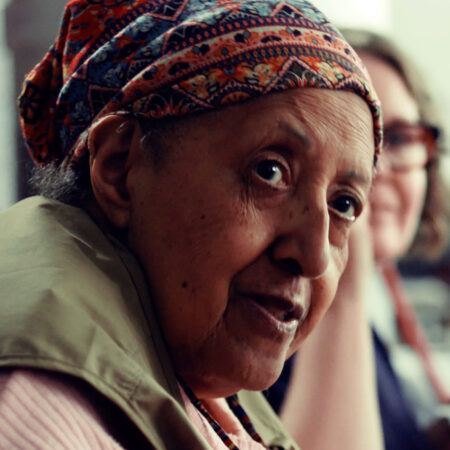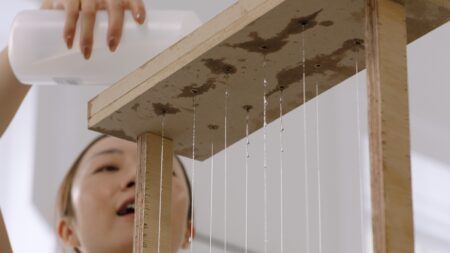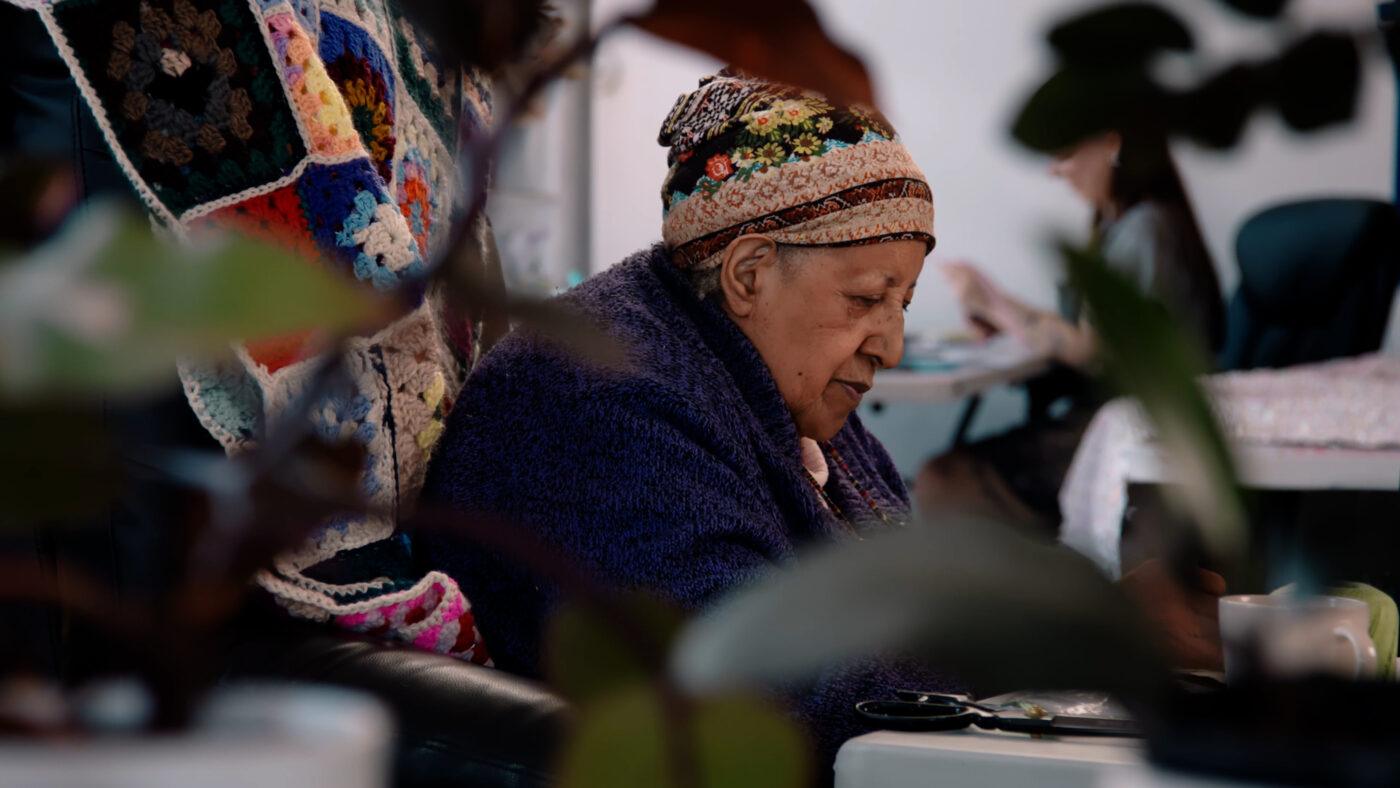Howardena Pindell

Howardena Pindell was born in 1943 in Philadelphia, Pennsylvania, and currently lives and works in New York City. She graduated with a BFA from Boston University in 1965 and an MFA from the Yale School of Art and Architecture in 1967. Pindell’s large-scale abstract paintings and mixed-media works combine conventional and unconventional materials and techniques: exploring color, structure, and texture. By developing a visual language through the use of circles, numbers, and grids, the artist’s work reflects her interests and struggles ranging from her observations of the cosmos to systemic prejudice in the United States.
Pindell’s innovative approaches to artmaking draw from and embody her experiences, through the use of circular forms and numbers to her highly textured canvases. In the early 1970s, the artist began her signature series of Spray Dot paintings: fields of color composed of small dots. Pindell creates these works, like Untitled (1970) or Untitled (Dawn) (2022), by creating a grid of holes in a manila folder using a hole punch, and subsequently using the folder as a stencil through which she layers different colored dots on the canvas. Later, the artist expanded these works to include the leftover punched dots from earlier stencils, adding a new element of texture to the works as in Untitled #20 (Dutch Wives Circled and Squared) (1978). Alongside her Spray Dot series, the artist works with what she calls “nonsense numbers,” as in Untitled #2 (1973) or her series Video Drawings. In both bodies of work, Pindell intuitively arranges numbers on a canvas or a photograph. “I see abstraction as an intuitive expression of someone’s experience, both good and both bad,” the artist says. “Its purpose is almost a way of opening up your thought process because you are reading someone else’s language and you are interpreting it through your own language.” Both bodies of work stem from Pindell’s life and observations, her visual language speaking to the personal and the universal through the omnipresent forms of circles and numbers.
In addition to exploring formal elements of artmaking, the artist also makes work directly referencing issues of politics, racism, exclusionary feminism, and violence. Free, White and 21 (1980), Pindell’s seminal video installation, recounts her experiences as a Black artist and generally, as a Black woman in the United States. In the video, the artist plays both herself and a white art critic, using a blond wig and sunglasses as her disguise. As herself, the artist describes different instances of discrimination that she faced, while her art critic persona makes explicit the reasons that Pindell’s work is overlooked by a majority white art world. “Even though early on, my work faced a lot of rejection,” says the artist, “I just kept going. I just didn’t give up.” Through both large-scale abstract pieces and more personal and political works, Pindell investigates her identity, experiences, and interests as a Black female artist working in abstraction.
Videos 1
-
Howardena Pindell
“The process of being an artist I find very fulfilling. I feel a sense of freedom.”
Howardena Pindell

